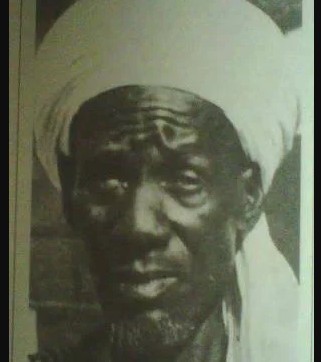
Let’s uncover the fascinating Alhassan Dantata biography, one of the wealthiest individual of the 20th century.
Alhaji Alhassan Abdullahi Dantata, often affectionately referred to as “Dantata,” was a prominent Nigerian businessman, merchant, and philanthropist.
Born in 1877 in Bebeji, Kano Emirate, Dantata rose from modest beginnings to become one of West Africa’s wealthiest individuals during the colonial era. He is also renowned as the great-grandfather of Aliko Dangote, one of Africa’s richest men.
This biography delves into his life, tracing his journey from childhood hardships to becoming a legendary figure in commerce.
Alhassan Dantata Biography Summary
| Attribute | Details |
|---|---|
| Full Name | Alhassan Abdullahi Dantata |
| Birth Year | 1877 |
| Birthplace | Bebeji, Kano Emirate (present-day Kano State, Nigeria) |
| Death | August 17, 1955, in Kano, Northern Region, British Nigeria |
| Occupation | Merchant, Trader, Philanthropist |
| Spouses | Umma Zaria, Maimuna |
| Children | Ahmadu, Sanusi, Mamuda, Aminu, Mudi (Sulaiman), Abdullahi, Amina (Yaawo), Bara’atu, Jamilu |
| Notable Relatives | Aliko Dangote (great-grandson through Sanusi) |
Early Life of Alhassan Dantata

Alhassan Dantata was born into the Agalawa trading family in 1877.
His father, Abdullahi, was a prosperous caravan leader, while his mother was an accomplished trader. The Agalawa were well-known for their expertise in long-distance trade, dealing in textiles, cattle, and kolanuts. However, Dantata’s early years were marked by significant hardships.
Following his father’s death around 1885, his mother relocated to Accra, leaving Dantata and his siblings under the care of a family servant named Tata. This arrangement earned him the nickname ‘ƍan Tata,’ meaning ‘son of Tata.’
In his formative years, Dantata attended a Qur’anic school while engaging in petty trading to support himself.
This period shaped his entrepreneurial mindset and instilled a habit of saving diligently. In his mid-teens, he traveled to Accra to reunite with his mother, where he lived as an almajiri, studying under Islamic teachers and sustaining himself through begging and occasional labor.
The Kano Civil War (1893-1895) disrupted life in the region, particularly for the Agalawa community, who were persecuted for their political alliances. Dantata and his brothers were captured and sold into slavery during this period.
Accounts of his escape vary, but it is believed he either redeemed himself using his savings or managed to flee captivity, eventually returning to Kano. By 1914, he reclaimed his family’s property in Bebeji, signifying his reintegration into Kano’s commercial ecosystem.
Alhassan Dantata Business Ventures

Dantata’s entrepreneurial journey began in earnest in the early 20th century.
He initially focused on the kolanut trade, establishing lucrative routes between Kano and Lagos, which extended to Accra. His innovative approach to trade, coupled with his strategic use of established trade networks, allowed him to gain a competitive edge.
In 1918, Dantata diversified into the groundnut trade, capitalizing on the crop’s increasing demand in Europe. His collaboration with the Niger Company (later part of the United Africa Company) proved particularly fruitful.
His basic knowledge of English and experience in coastal trade gave him an advantage over his peers. By 1922, Dantata had become one of the wealthiest merchants in Kano, supplying vast quantities of groundnuts to the Niger Company.
The expansion of the railway network in the 1920s further boosted his operations, enabling the efficient transportation of goods such as cattle and groundnuts to coastal ports.
In 1929, he made history by becoming the first Kano businessman to deposit twenty camel-loads of silver coins at the Bank of British West Africa.
By the 1940s, Dantata controlled approximately 20,000 tons of groundnuts annually, contributing significantly to Nigeria’s position as a leading global exporter.
In the early 1950s, with the support of the United Africa Company (UAC), he became a direct importer of European goods. He was also the first Nigerian licensed buying agent for the Northern Nigeria Marketing Board, securing credit facilities worth up to £500,000 for crop purchases.
His business empire expanded to include real estate, construction, and transportation, with his sons managing different aspects of his enterprises.
Alhassan Dantata Legacy

Dantata’s legacy is marked by his contributions to commerce, philanthropy, and social development. He was well-known for his generosity, particularly his annual sponsorship of pilgrimages to Mecca.
His commitment to social welfare was evident in his support for the less privileged, including the annual distribution of cattle during Eid al-Kabir.
Upon his death on August 17, 1955, Dantata left a substantial estate.
Although he rarely kept records and used banks sparingly, estimates suggest he left over £300,000 in cash. His business acumen and ethical practices have inspired generations, with his descendants, including Aliko Dangote, continuing his entrepreneurial spirit.
Alhassan Dantata Recent News
In 2024, Alhaji Aminu Alhassan Dantata, a prominent member of the Dantata family, donated N1.5 billion to flood victims in Maiduguri, Borno State. This act of generosity underscores the family’s ongoing commitment to philanthropy.
Frequently Asked Questions

What made Alhassan Dantata successful?
Dantata’s success stemmed from his strategic use of trade routes, collaboration with colonial companies, and diversification into high-demand commodities like groundnuts.
His frugality, business ethics, and ability to adapt to changing economic conditions also played a significant role.
How is Alhassan Dantata connected to Aliko Dangote?
Alhassan Dantata is the great-grandfather of Aliko Dangote. Dantata’s entrepreneurial legacy significantly influenced Dangote, who has built one of Africa’s largest business conglomerates.
What industries did Dantata’s business cover?
Dantata’s business empire spanned agriculture (groundnuts and kolanuts), transportation, real estate, construction, and import-export trade. His contributions were instrumental in shaping Nigeria’s economic landscape during the colonial era.
Alhassan Dantata’s life story is a testament to resilience, innovation, and generosity. His remarkable journey from adversity to affluence continues to inspire generations across Nigeria and beyond.
Leave a Reply